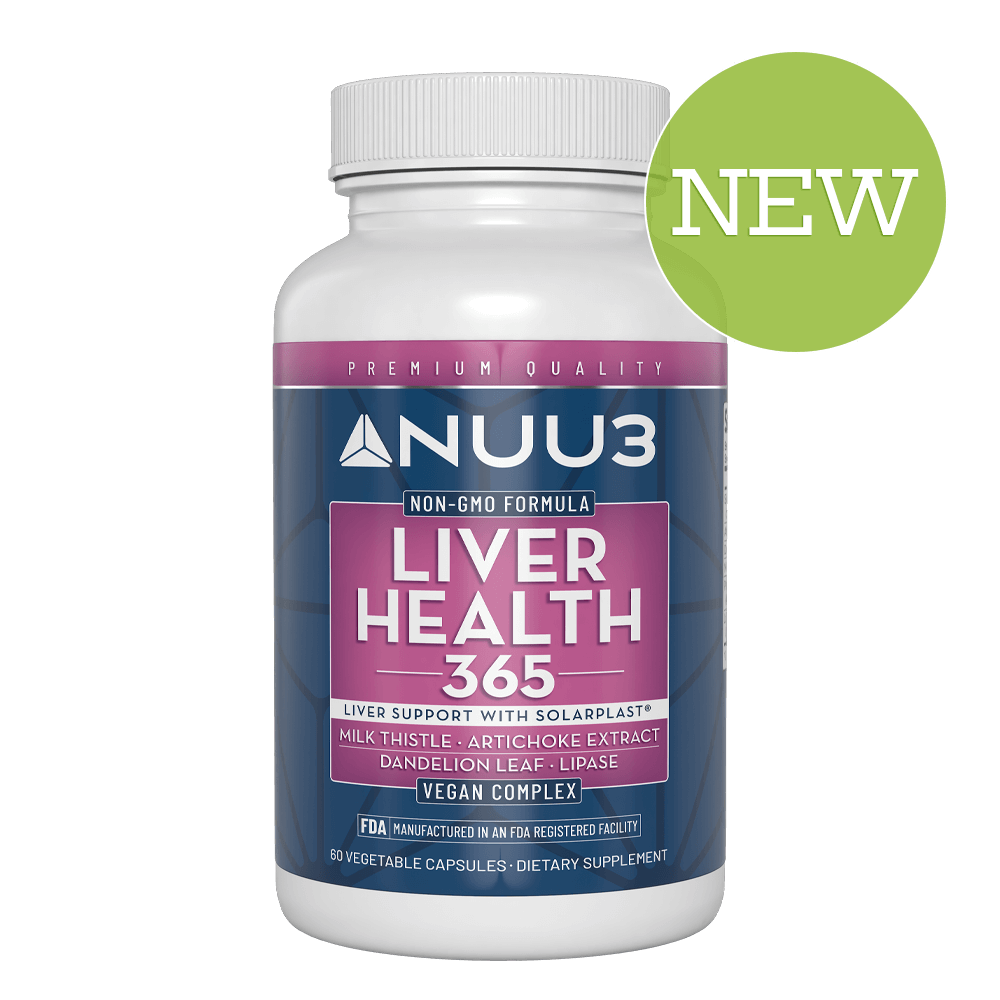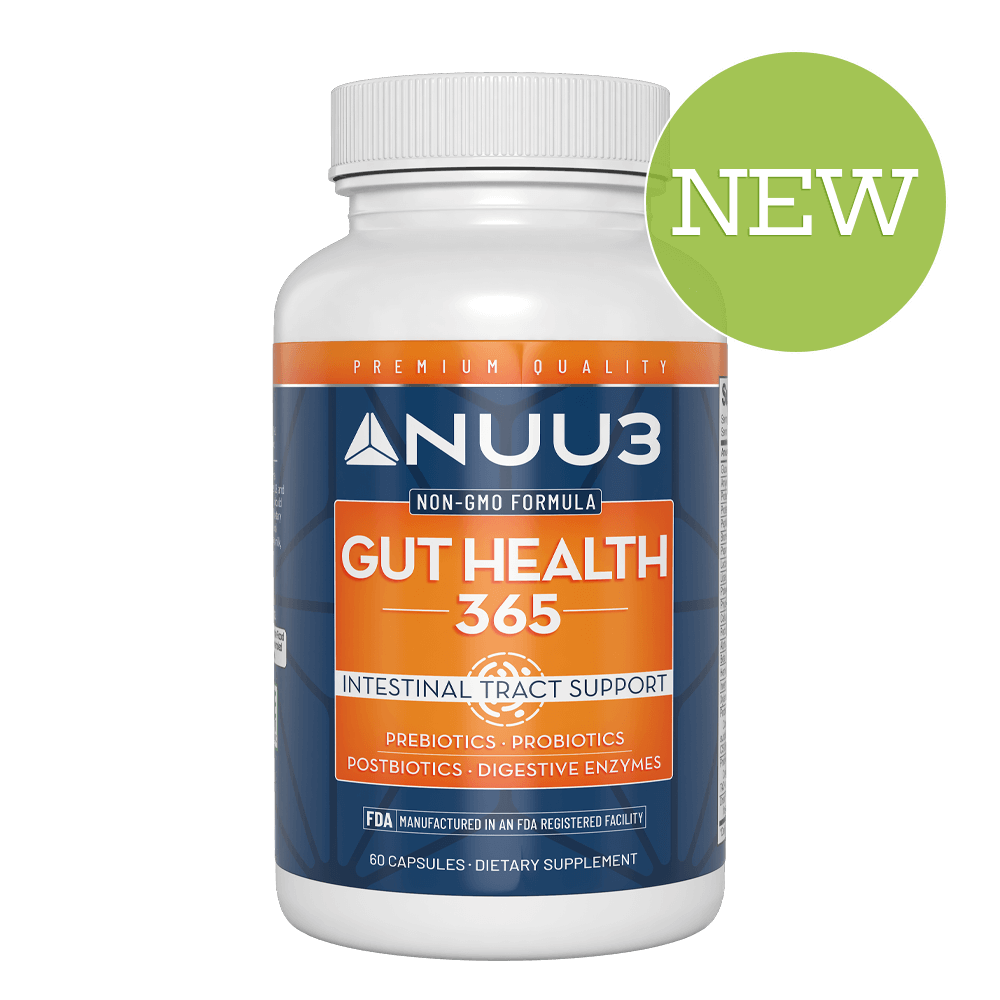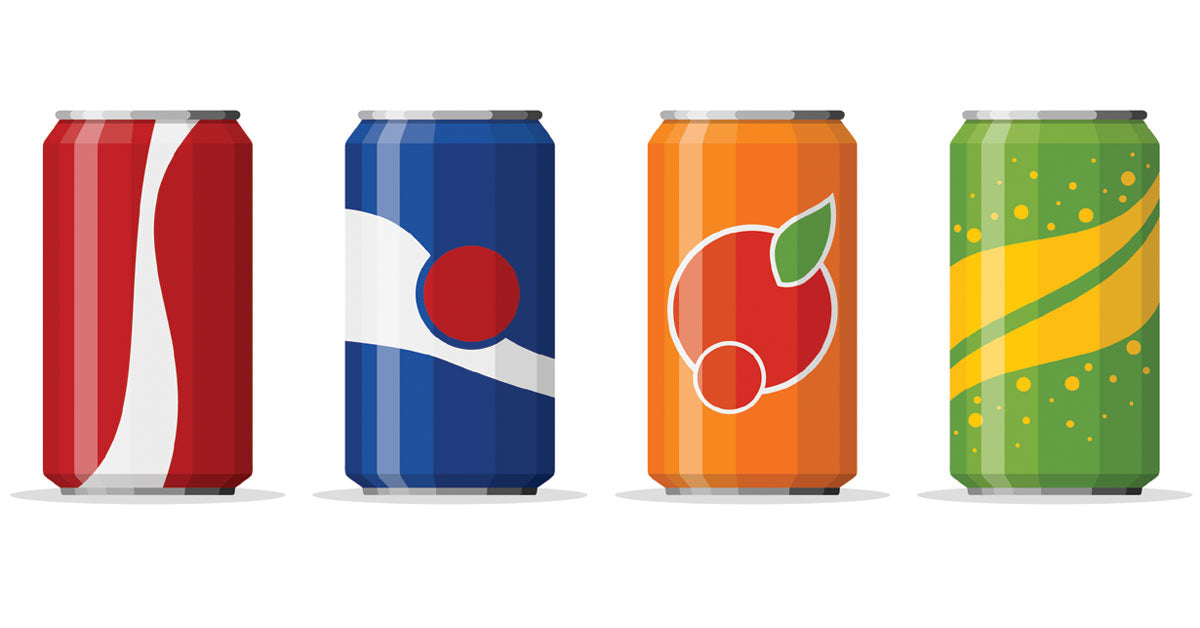Do you reach out for an energy drink or two when in need of a quick energy boost? If so, consider rethinking this habit. Energy drinks are marketed as much-needed solutions for increased productivity, but they’re not helpful. Are energy drinks bad for you? How do they affect your health? Who should avoid energy drinks entirely? Read below to find out more.
Energy Drinks Overview
Energy drinks are beverages that are specifically created to boost energy levels and alertness quickly. Any beverage that contains high amounts of a stimulant ingredient, usually caffeine, is considered an energy drink. Many energy drinks contain around 200mg of caffeine[1], which is the amount found in two cups of brewed coffee.
A typical energy drink contains numerous ingredients, such as carbonated water, sugar, caffeine, artificial sweeteners, and substances or herbs linked to mental alertness and performance. These include taurine, panax ginseng, l-carnitine, B vitamins, guarana seed extract, and more.
For some people, energy drinks are the same as coffee. But this isn’t quite correct. See more about coffee vs. energy drinks further in this post.
While they are marketed as beneficial, the reality is different. So, are energy drinks bad for you? Yes, read further and you’re going to see why.
Why Do People Consume Energy Drinks?
People usually consume energy drinks because they need a quick and intense energy boost. Students tend to drink these beverages when preparing for their exams or studying throughout the night.
The main reason people consume energy drinks is to stay awake and alert for long hours, increase productivity, and improve physical performance. Energy drinks are often considered a convenient solution for a temporary energy surge. That said, some people consume them for the taste or as a social beverage.
According to the June 2023 Statista report, 32% of respondents[2] aged 18 to 29 consume energy drinks regularly. That means three in 10[3] young adults consume these drinks daily.
Further in this post, you’re going to learn how bad are energy drinks for you especially if you consume these beverages frequently or regularly.
How Do Energy Drinks Boost Energy Levels?
Energy drinks increase energy levels due to specific ingredients that keep you stimulated and alert. Most beverages of this kind contain high amounts of caffeine, which is a central nervous system stimulant. Caffeine works by blocking the action of adenosine[4], a neurotransmitter that promotes sleepiness and relaxation. As a result, you feel energetic and alert.
High amounts of sugar in energy drinks aren’t just for taste. Sugar provides a rapid source of glucose, which leads to a quick rise in blood sugar levels. When blood sugar increases, your energy levels go up too.
Moreover, energy drinks also contain ingredients like taurine[5], which affects neurotransmitter activity in the brain and promotes mental alertness.
These beverages are popular across the globe and most people don’t wonder “are energy drinks bad for you”, but it’s important to be informed about the consequences of regular intake.
Why Are Energy Drinks Considered Bad for You?
You’ve probably come across claims that these beverages aren’t a good choice for regular consumption. However, why are energy drinks bad for you? This question has several answers. Here are all the most significant reasons why energy drinks can be harmful:
-
May contribute to heart problems: the combination of high caffeine and sugar can strain the cardiovascular system and contribute to heart problems[6] including arrhythmias and a higher risk of heart attacks. Energy drinks may increase blood pressure and heart rate and reduce important markers of blood vessel function. So, one answer to how bad are energy drinks for you is that they can put your heart health in jeopardy.
-
Sugar and calorie overload: most energy drinks contain high amounts of sugar, which can be bad for health especially if you have diabetes. Sugar overload can also cause dental problems. Are energy drinks bad for you if you don’t have diabetes, you’re probably wondering. Yes, because they can still cause blood sugar spikes and put you in a caloric surplus, which isn’t good news if you’re struggling with excess weight.
-
Oxidative stress and inflammation: elevations in blood sugar levels are also associated with increased oxidative stress[7] and inflammation, both of which are involved in the onset of various chronic diseases.
-
Potential for mixing with alcohol: people, especially students, tend to mix energy drinks with alcohol which can be quite harmful. Why are energy drinks bad for you when you combine them with alcohol? Doing so can lead to potentially risky behaviors and alcohol poisoning. The stimulant effects of caffeine mask the depressant effects of alcohol. You’re more likely to experience heart palpitations[8] when combining energy drinks and alcohol compared to when drinking alcohol alone.
-
Dehydration: caffeine is a diuretic that increases urination and potentially leads to dehydration. This effect is emphasized when energy drinks are consumed during physical activity.
-
Tiredness: while people generally consume these beverages to boost energy levels, drinking them too often can lead to the opposite effects. Your energy levels can crash which leads to tiredness.
-
Lack of regulation: additives in energy drinks haven’t been extensively studied and aren’t regulated by the FDA carefully; their safety is a major concern.
Side Effects of Energy Drinks
The easiest way to answer the question “are energy drinks bad for you” is to take a few moments to take note of the side effects you experience after consuming them. Energy drinks cause various side effects that may affect your well-being and quality of life. These side effects are:
-
Trouble sleeping: high caffeine content in energy drinks disrupts sleep patterns thus making it difficult to fall or stay asleep. Studies confirm[9] energy drinks are associated with increased daytime sleepiness and insomnia. So, one reason why are energy drinks bad for you is because they disrupt sleep patterns.
-
Anxiety: stimulants in energy drinks cause a heightened feeling of anxiety and restlessness. That happens because caffeine may stimulate your body’s fight or flight mechanism.
-
Fast heart rate: stimulant ingredients in energy drinks can make your heart beat faster and cause palpitations or arrhythmias.
-
Increased blood pressure: a combination of sugar and stimulants like caffeine can lead to high blood pressure. This effect is temporary but can be problematic with regular consumption.
-
Jittery feelings: high caffeine levels are responsible for jitteriness because it elevates adrenaline. Stimulating effects of caffeine cause rapid heart rate, shakiness, restlessness, and jitteriness.
-
Tremors: excessive intake of stimulants like caffeine can cause muscle tremors or shakiness. That happens because heartbeats and blood flow are also more pronounced.
-
Headache: energy drinks cause a sudden surge of caffeine and energy, which is followed by a crash thus triggering headaches.
Who Should Avoid Energy Drinks?
Reasons why energy drinks are bad for you are numerous and while some people can limit intake others should avoid them entirely. Below is a list of people who should avoid these beverages:
- Pregnant women: excessive intake of caffeine during pregnancy is associated with a higher risk of miscarriage, preterm birth, and low birth weight[10]. How bad are energy drinks for you when you're pregnant? This is best depicted by the fact that stimulants in energy drinks are associated with birth defects[11].
- People who drink alcohol: since energy drinks mask the depressant effects of alcohol, they provide a false sense of alertness and potentially encourage further alcohol intake. Other problems are potentially risky behaviors such as driving while intoxicated and alcohol poisoning.
- People with heart disease: energy drinks can worsen heart-related issues and increase the risk of arrhythmias, hypertension, and heart attack.
- Caffeine-sensitive people: in these cases, even small amounts of caffeine could trigger adverse reactions such as insomnia, restlessness, and rapid heartbeat.
How to Boost Energy Levels Without Energy Drinks
Despite being aware that the answer to “are energy drinks bad for you” is “yes”, many people aren’t quite sure how to achieve quick energy boosts in other ways.
One option is to drink a cup of coffee, but it should be in moderation. While their effect is similar, there are numerous differences when comparing coffee vs. energy drinks. For starters, coffee is a natural beverage that is typically lower in sugar and calories[12]. Just make sure not to overdo it.
Another useful strategy to increase energy levels is to take care of your health. Good health and well-being can make you feel alert and energized.
Getting enough sleep is crucial for energy. If you struggle to relax you could benefit from Nuu3 Keep Calm Gummies, which provide much-needed calmness and relaxation. These gummies also help manage stress and anxiety, which would otherwise lower energy levels.
Breaking the Cycle: Healthy Strategies for Energy Boost
Now that you know how bad are energy drinks for you, it’s important to focus on breaking the cycle and focusing on healthy alternatives.
Breaking the cycle starts by gradually lowering caffeine intake. You can ditch energy drinks and consume coffee until you’re ready to avoid caffeine entirely. While coffee vs. energy drinks differences are quite significant, it could be healthier to avoid caffeine if you struggle to moderate consumption.
Incorporating healthy habits into your lifestyle can help break the cycle. These habits include:
-
Stay hydrated: drink plenty of water during the day since dehydration causes fatigue.
-
Eat a balanced diet: A nutritious diet provides sustained energy throughout the day. Eat a lot of fruits, vegetables, whole grains, lean proteins, and healthy fats. Meet daily vitamin needs with Nuu3 Daily Multivitamin Gummies to avoid nutritional deficiencies.
-
Exercise: physical activity in the form of cardio exercise or strength training can boost energy levels and improve your mood.
-
Quitting smoking: this unhealthy habit can narrow blood vessels, impair blood flow, and make you feel more tired.
In addition to healthy habits to adopt, you should also focus on alternatives for energy drinks. These include:
-
Green tea: contains caffeine (in lower amounts) and antioxidants thus boosting energy levels without sugar and calorie overload. If you're not a fan of the taste of green tea, you can try Nuu3 Greenpura instead. This product contains pure, highly concentrated green tea leaf extract, which is a powerful active ingredient with multiple proven to have same health benefits.
-
Water with lemon: both refreshing and hydrating, it keeps you revitalized and energetic.
-
Smoothies: a combination of different fruits (and even vegetables) supplies the body with vitamins, minerals, antioxidants, and other compounds that support energy levels and well-being.
-
Coconut water: good source of potassium, keeps you hydrated, and promotes recovery after exercise.
-
Sparkling water: boosts your immune system, flushes out toxins, and makes you feel energetic.
Frequently Asked Questions
Are energy drinks worse than coffee?
Yes, energy drinks are worse than coffee because they’re not natural and they contain high levels of sugar, calories, and other ingredients. In a fight between coffee vs. energy drinks, energy drinks have more disadvantages in terms of adverse effects.
Is it a bad idea to combine alcohol and energy drinks?
Yes, it is a bad idea to combine alcohol and energy drinks. These beverages conceal the effects of alcohol thus giving you a false sense of alertness. As a result, you may end up drinking high amounts of alcohol, which could lead to alcohol poisoning. You’re also more likely to engage in dangerous behaviors.
What food gives quick energy?
Various foods give quick energy. These include:- Fruits: bananas, berries, apples, oranges
- Vegetables: sweet potatoes, beets, dark leafy greens
- Animal products: fatty fish, beef liver, yogurt, eggs
- Grains: oatmeal, quinoa, brown rice
- Dark chocolate
Bottom Line
To sum up, are energy drinks bad for you? Yes, they are. While they may taste great, they’re packed with sugar, calories, stimulants, and other ingredients that may do more harm than good. If you need a quick energy boost from time to time, it’s better to focus on healthier strategies instead of drinking these beverages.
References
1] ↑https://www.hsph.harvard.edu/nutritionsource/energy-drinks/
2] ↑https://www.statista.com/forecasts/228168/energy-drinks-consumption-usa
3] ↑https://www.eatingwell.com/article/8061814/are-energy-drinks-healthy/
4] ↑https://www.ncbi.nlm.nih.gov/pmc/articles/PMC3153505/
5] ↑https://news.cornell.edu/stories/2008/02/scientists-close-taurines-activity-brain
6] ↑https://pubmed.ncbi.nlm.nih.gov/24176062/
7] ↑https://pubmed.ncbi.nlm.nih.gov/19149749/
8] ↑https://pubmed.ncbi.nlm.nih.gov/22897756/
9] ↑https://www.ncbi.nlm.nih.gov/pmc/articles/PMC10195404/
10] ↑https://www.who.int/tools/elena/interventions/caffeine-pregnancy
11] ↑https://www.ncbi.nlm.nih.gov/pmc/articles/PMC6042847/
12] ↑https://www.drinkallin.com/blogs/news/are-energy-drinks-bad-for-you










